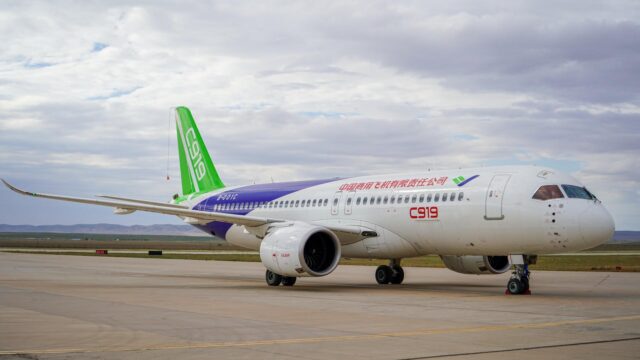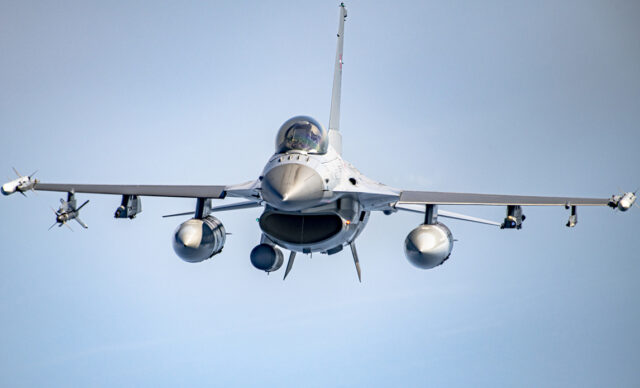UK open to Germany in GCAP, but likely not as full partner

September 29, 2025

The United Kingdom is prepared to allow Germany to join its GCAP/Tempest program, although it may not be as a full partner. Germany could play a valuable role as a contributor to the program, particularly in non-core manned fighter aspects of the ‘system-of-systems.’
Report says UK willing to admit Germany to GCAP program
According to a new article by The Telegraph, Britain is ready to admit Germany to its sixth-generation fighter jet program. The UK is leading the development of the Global Combat Air Program (GCAP) sixth-generation fighter jet in partnership with Italy and Japan. The publication cited unnamed “industry sources.”

Even so, it appears too late to admit Germany as a full partner at the level of the existing three partners. The program is simply too far along, and the time restraints are too urgent. The three countries are already finalizing worksharing agreements, and renegotiating Germany as a full member would slow it down.
Instead, the suggestion is that Germany may have an input in certain aspects of GCAP, including the drone platforms that are expected to accompany it. Germany could also join as a buyer.
We were recently at #DSEI2025 showcasing the latest technologies and updates on the future of combat air ✈️ including a dedicated Global Combat Air Programme stand alongside our partners from Italy and Japan, and a full scale replica of the aircraft.https://t.co/ZSVmKRqMtk pic.twitter.com/XgiQf56DF6
— BAE Systems Air (@BAESystemsAir) September 26, 2025
It’s worth noting that, as a ‘system-of-systems’, there is more to the project than just the manned fighter. The aircraft will need loyal wingman drones and other advanced systems.
The Japan question on new GCAP partners
While the UK may be leading the GCAP program, it will need to have Japan on board with any new decision. For Japan, this is the first time they have developed a fighter jet with any country other than the United States.
The country lacks experience in worksharing with international partners and is known to be wary of complicated international defence projects. The UK is seen as more eager to invite more partners (like Saudi Arabia) to the program than Japan.

But perhaps more critically, Japan wants the GCAP fighter jet in service ASAP. The first demonstrator flight is scheduled to fly in 2027 and then enter service in 2035. Around that time, Japan is scheduled to be retiring many of its Mitsubishi F-2 fighter jets (a licensed derivative of the F-16).
According to Professor Justin Bronk, GCAP is being designed to overmatch future Chinese fighter jets. For Japan, that requirement is somewhat urgent.
The requirement is not as urgent for Italy and the UK. In the future, Russia is expected to continue falling behind Chinese fighter jet designs and is expected to eventually purchase Chinese jets. While Chinese next-generation jets are already flying, Russia’s remain mockups, and it is unable to scale up production of its overhyped Su-57.
The UK’s flagship Combat Air Flying Demonstrator recently reached a major milestone ✅
— BAE Systems Air (@BAESystemsAir) September 23, 2025
Two thirds of its structural weight is now in manufacturing ✈️
Catch up on the news here 👇https://t.co/989fnsrr0s pic.twitter.com/D2MrBXfLFS
Still, one benefit for the UK in having Germany as a non-core member is that it could weaken or remove Germany’s ability to veto potential exports.
The UK’s efforts to export Typhoon Eurofighter jets to Saudi Arabia and Turkey have met opposition in Berlin that threatened to veto the sales for years. This remains fresh in the minds of many in London. A lull in orders resulted in the UK’s Typhoon production line becoming idle.
No good options for Germany
Tensions between Germany and France on the FCAS next-generation fighter jet have been boiling away for years now. France’s Dassault says it knows how to build a sixth-generation fighter jet and is no longer interested in the current arrangement where decisions are required from all three partners (the third being Spain).

Dassault has demanded decision-making rights and 80% of the workshare. It has also dared Germany’s Airbus to walk away.
Germany has no good options if it ditches the FCAS program. If it joins GCAP, it would have less workshare and less say in the program than it does in the FCAS program.
After #Airbus Defence CEO said "we no longer see any reason to continue the FCAS, other than a return to the agreed principles" is the Franco-German-Spanish future fighter programme now grounded? #avgeek #defence #Dassault #SCAF https://t.co/EMjJvhZZc1 pic.twitter.com/9Ji1bfJTvO
— Royal Aeronautical Society (@AeroSociety) August 5, 2025
Another option for Germany is developing a next-generation fighter jet with Sweden. Sweden produces the Gripen fighter jet and is also known to be considering its next-generation options. It is unclear what Spain would do if France and Germany broke up.
















